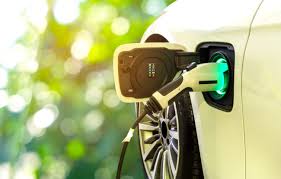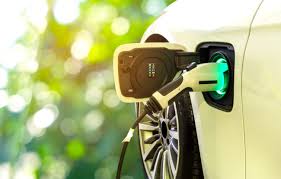
The key concern for power grid operators, charging businesses, and governments as sales of electric vehicles (EV) continue to climb is how to run tens of millions of vehicles without destroying local networks or expending billions on upgrading power grids.
The solution is smart charging.
Simply said, smart charging software enables EV owners to connect in during expensive peak hours and delay the vehicle's use of electricity until cheaper off-peak hours. This reduces the load on the electric grid, increases the usage of renewable energy, and saves money for drivers.
Millions of EV owners charging after work – EY thinks Europe will have 65 million EVs by 2030 and 130 million by 2035 – might overload local systems, creating blackouts.
"The shift to electric will be nigh on impossible without smart charging," Chris Pateman-Jones, CEO of British EV charger company Connected Kerb, told Reuters while demonstrating a pilot project on public chargers in Hackney, a London borough.
You may set your charging speed, charge duration, and exact pricing down to a low, sluggish "Eco" rate of 19 pence (26 US cents) per kilowatt using Connected Kerb's smartphone app.
"It's so much cheaper and simpler," said Ged O'Sullivan, a 65-year-old pub owner who cut his plug-in hybrid's charging bill by 30% with Connected Kerb.
Because there are so few public chargers available for folks who can't charge at home because they park on the street, smart charging for public chargers is a key difficulty. find out more
According to an EY and Eurelectric research, Europe would require 9 million public charges by 2035, up from 374,000 now.
In the near future, "bidirectional" or "vehicle-to-grid" charging should be available, allowing millions of EV owners to sell the energy stored in their batteries to grid operators during peak hours.
According to the UK's energy regulator, Ofgem, even in the United Kingdom, where smart charging at home is commonly available, many EV owners are ignorant of its existence. According to the Smart Electric Power Alliance, only a small percentage of utilities in the United States offer it.
Only a few cars, including Renault's planned Ioniq and Hyundai's upcoming Ioniq, are capable of bidirectional charging currently, while more are on the way.
"Most cars, at this point, do not support this bidirectional charging yet," said Robin Berg, CEO of We Drive Solar. Hundreds of bidirectional chargers were provided for a pilot project in the central Dutch city of Utrecht by the firm, and the company collaborated on automobiles with Renault SA and Hyundai Motor Co.
"Other carmakers will follow," Berg said.
In 2021, about 20 per cent of new automobiles sold in the Netherlands and nearly 12% in the United Kingdom were totally electric.
Norway is at the forefront of electrification, with EVs accounting for over three-quarters of all vehicle sales in the capital Oslo. Some local substations date from the 1950s, and without smart charging, Oslo's grid would require extensive and costly modifications.
"To handle this we need smart charging solutions because we don't want to over-invest in the grid," said Sture Portvik, who heads Oslo's charging infrastructure efforts.
According to Pateman-Jones, Connected Kerb hopes to have 190,000 UK on-street chargers by 2030, allowing it to predict consumer charging trends for grid operators and offer lower prices when renewable energy is plentiful.
"Today when there's too much wind on the grid, wind farms are told to turn the wind turbines off," he said. "With smart charging we can pull more of that power."
Although some UK energy companies provide low off-peak prices for home smart charging, few EV users take advantage of them.
"The perception is smart charging at home is a done deal," said Charlie Cook, CEO of Rightcharge, a UK firm that helps EV owners find low tariffs. "But the reality is awareness of these tariffs is surprisingly low."
Smart charging, according to Rightcharge, may save UK drivers £10 billion ($13.5 billion) by 2030.
Lookers, a British vehicle dealer network, direct EV purchasers to Rightcharge's website to investigate their possibilities.
"Early adopter" EV purchasers, according to Lookers' business development director Andrew Hall, are "quite educated about smart charging."
"But that is changing as EV sales rise," he added.
According to the Smart Electric Power Alliance, only 50 out of 3,000 utilities in the United States offer smart charging.
ChargePoint's US chargers can all smart-charge, but the business wants more utilities to do so.
"We see a lot of positive response from customers when their utility is offering those rates," said Anthony Harrison, ChargePoint's North American head of utility partnerships.
Until smart charging is widely available, the charging provider Blink Charging Co has one predetermined rate.
"We decided to keep it simple for our customers," said Blink CEO Michael Farkas.
(Source:www.reuters.com)
The solution is smart charging.
Simply said, smart charging software enables EV owners to connect in during expensive peak hours and delay the vehicle's use of electricity until cheaper off-peak hours. This reduces the load on the electric grid, increases the usage of renewable energy, and saves money for drivers.
Millions of EV owners charging after work – EY thinks Europe will have 65 million EVs by 2030 and 130 million by 2035 – might overload local systems, creating blackouts.
"The shift to electric will be nigh on impossible without smart charging," Chris Pateman-Jones, CEO of British EV charger company Connected Kerb, told Reuters while demonstrating a pilot project on public chargers in Hackney, a London borough.
You may set your charging speed, charge duration, and exact pricing down to a low, sluggish "Eco" rate of 19 pence (26 US cents) per kilowatt using Connected Kerb's smartphone app.
"It's so much cheaper and simpler," said Ged O'Sullivan, a 65-year-old pub owner who cut his plug-in hybrid's charging bill by 30% with Connected Kerb.
Because there are so few public chargers available for folks who can't charge at home because they park on the street, smart charging for public chargers is a key difficulty. find out more
According to an EY and Eurelectric research, Europe would require 9 million public charges by 2035, up from 374,000 now.
In the near future, "bidirectional" or "vehicle-to-grid" charging should be available, allowing millions of EV owners to sell the energy stored in their batteries to grid operators during peak hours.
According to the UK's energy regulator, Ofgem, even in the United Kingdom, where smart charging at home is commonly available, many EV owners are ignorant of its existence. According to the Smart Electric Power Alliance, only a small percentage of utilities in the United States offer it.
Only a few cars, including Renault's planned Ioniq and Hyundai's upcoming Ioniq, are capable of bidirectional charging currently, while more are on the way.
"Most cars, at this point, do not support this bidirectional charging yet," said Robin Berg, CEO of We Drive Solar. Hundreds of bidirectional chargers were provided for a pilot project in the central Dutch city of Utrecht by the firm, and the company collaborated on automobiles with Renault SA and Hyundai Motor Co.
"Other carmakers will follow," Berg said.
In 2021, about 20 per cent of new automobiles sold in the Netherlands and nearly 12% in the United Kingdom were totally electric.
Norway is at the forefront of electrification, with EVs accounting for over three-quarters of all vehicle sales in the capital Oslo. Some local substations date from the 1950s, and without smart charging, Oslo's grid would require extensive and costly modifications.
"To handle this we need smart charging solutions because we don't want to over-invest in the grid," said Sture Portvik, who heads Oslo's charging infrastructure efforts.
According to Pateman-Jones, Connected Kerb hopes to have 190,000 UK on-street chargers by 2030, allowing it to predict consumer charging trends for grid operators and offer lower prices when renewable energy is plentiful.
"Today when there's too much wind on the grid, wind farms are told to turn the wind turbines off," he said. "With smart charging we can pull more of that power."
Although some UK energy companies provide low off-peak prices for home smart charging, few EV users take advantage of them.
"The perception is smart charging at home is a done deal," said Charlie Cook, CEO of Rightcharge, a UK firm that helps EV owners find low tariffs. "But the reality is awareness of these tariffs is surprisingly low."
Smart charging, according to Rightcharge, may save UK drivers £10 billion ($13.5 billion) by 2030.
Lookers, a British vehicle dealer network, direct EV purchasers to Rightcharge's website to investigate their possibilities.
"Early adopter" EV purchasers, according to Lookers' business development director Andrew Hall, are "quite educated about smart charging."
"But that is changing as EV sales rise," he added.
According to the Smart Electric Power Alliance, only 50 out of 3,000 utilities in the United States offer smart charging.
ChargePoint's US chargers can all smart-charge, but the business wants more utilities to do so.
"We see a lot of positive response from customers when their utility is offering those rates," said Anthony Harrison, ChargePoint's North American head of utility partnerships.
Until smart charging is widely available, the charging provider Blink Charging Co has one predetermined rate.
"We decided to keep it simple for our customers," said Blink CEO Michael Farkas.
(Source:www.reuters.com)





